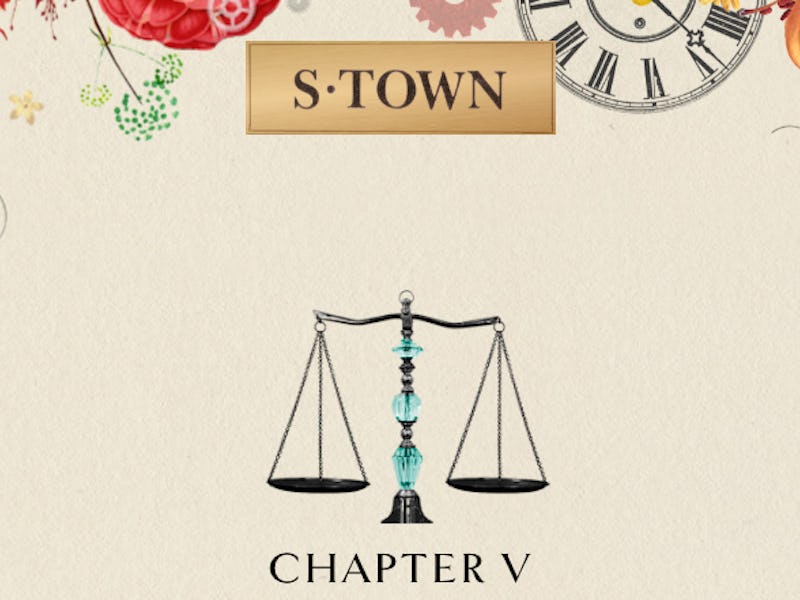S-Town, The Podcast That Outed Its Dead Subject, Is Being Sued
Will this be included in the movie?

S-Town was one of the most popular and controversial podcasts ever made, and now, the drama is slated to spill out of your phone and into the courtroom.
Warning: there are S-Town spoilers below this point.
On July 12, the estate of the deceased subject of the podcast, John B. McLemore, filed suit against the podcast and its affiliates, which include Serial, This American Life, and Chicago Public Media.
The lawsuit encapsulates the debate that surrounded the podcast and raises the question of when press freedom crosses over into a violation of privacy rights particularly as they relate to LGBT subjects.
The Complaint
If you’re not caught up, a loose outline of S-Town goes like this: McLemore invites podcast producer Brian Reed to Alabama to investigate a murder; the murder story goes nowhere but Reed takes interest in McLemore as a character; McLemore kills himself and Reed returns to Alabama to investigate, diving into details and postulation on everything from McLemore’s sexual orientation to his mental state.
The suit alleges that Reed and S-Town used and profited off of McLemore’s identity and story without his consent, and worse, knew about his intent to kill himself, did nothing, and went on to profit from it.
In particular, the suit takes issue with the fact that Reed publicized aspects of McLemore’s life that weren’t of public concern, and weren’t related to McLemore’s original communications with Reed. The suit says, “instead, they generally involved the most private matters of McLemore’s life.”
Outing a Subject
Those private matters included the most controversial aspect of S-Town — the messy outing of McLemore’s presumed sexual orientation (he never confirmed this to detail to Reed, but Reed went on to craft a narrative around his assumption).
In S-Town’s sixth episode, Reed, who is straight, acknowledged that he went against McLemore’s request to stay of the record concerning a friendship he had with a queer man, a detail which he then wove into a narrative of homosexuality that he projected on McLemore, that he then wove into a narrative of a tortured mental state.
In breaking his agreement with McLemore and not confirming any of his theories with him before his death, Reed committed multiple ethical if not legal sins in the process of his reporting.
Consentless Virality
To make the unnecessary, unconfirmed, and consentless outing even worse, the podcast found viral fame, being downloaded nearly 80 million times in one year. Not only does this raise issues of profits and identity, but it also cements details that were specifically off the record into the record.
While matters of off and on the record often go unchecked, Alabama, in particular, may provide McLemore’s estate with legal ground for its suit. According to Vox, an Alabama law passed in 2015 specifically entitles the dead to protection against use and exploitation of their likeness 55 years after death.
Whatever the outcome, the case is sure to be watched by free press and privacy advocates alike. In the wake of Gawker’s demise following the high-profile case involving Hulk Hogan’s sex tape, media companies are facing a shakier understanding of what is and isn’t of public interest. This case could help define that.